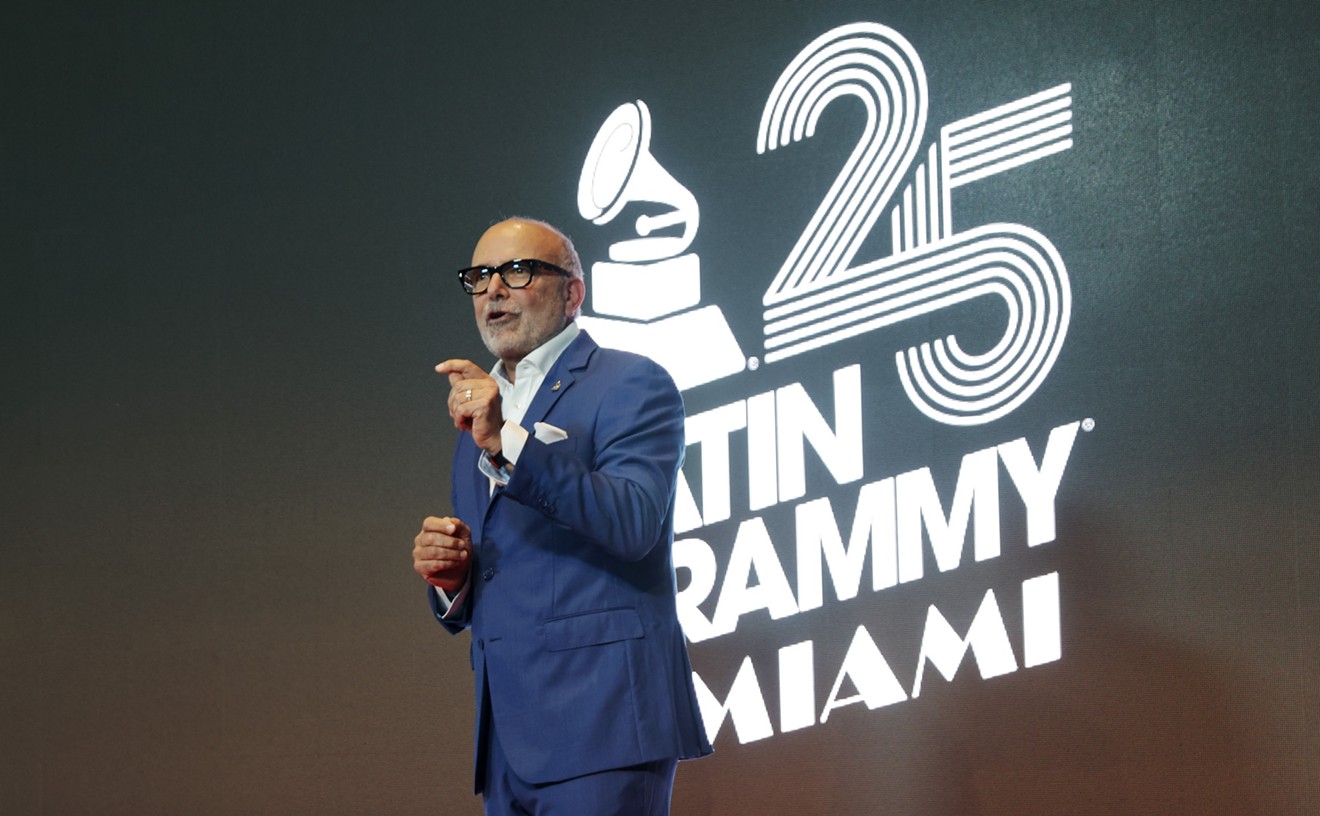Factory Black, from Tampa/St. Pete, would not exist if not for its founders' passion for and devotion to songwriting. In 1987 singer Brian Merrill and guitarist John McNicholas were working with a band called Parade in Paris that ascended to the upper ranks of the Bay area scene. McNicholas, asked to describe Parade's sound, begins, "It was sort of a, um, a..." at which point Merrill interrupts, "You don't want to say it, do you?" McNicholas searches his vocabulary, and finally says, "It was, um, new wave, sort of techno with some rock. Along the lines of INXS meets Peter Murphy."
Parade in Paris released a CD and other material, received plenty of positive press, was checked out by major record companies. But Merrill and McNicholas had been writing together before the Parade, and the too-many-chefs nature of the group prohibited that sort of Lennon/McCartney collaboration. "Everybody in the band," Merrill recalls, "was an incredible musician. I don't regret the experience. But each song had a tendency to get mixed up because everybody contributed to the writing." McNicholas adds, "The focus was schizophrenic, whereas [Factory Black] has a real focus."
The Parade ground to a halt as Merrill and McNicholas set their insights to guitar-heavy songs sans technical embellishment. At the beginning of 1990 the two turned their full attention to writing, and after about three months they felt ready to acquire a rhythm section and begin rehearsals. "We were writing with a drum machine and a borrowed bass, on four-track," McNicholas explains. "We picked up people along the way. The drummer [Dan Eggleston] was a guy I knew from work, and I said to him, `Well, you're our drummer now.'"
Attempts to find a fitting bass player failed, so Factory Black enlisted Merrill's brother Steve. "He's a phenomenal player," Merrill says, "but he's very jazz oriented, and it was a temporary thing all along." At the end of last year that line-up recorded a spectacular four-song cassette, String Driven Thing, which sold out its initial pressing of 500 copies.
It's easy to hear why the tape was snapped up like reefer at a Rasta convention. "Pretty How Town" skips along as easily and unpredictably as a stone tossed across a pond, every vocal jump as natural as breathing, the tempo shifting from flow to blow out, an acoustic guitar linking together solos and wails and swimming melodies. Merrill's whisper-to-a-roar voice surfs across the varied instrumental backing, harmonies bounce, and then you're ready to hear the song again. "Destination" takes a more direct route, the rich instrumental backing held to a steady course throughout, but Merrill's remarkable vocal prowess is still all over the place, unbridled, as strong and sure as a wild stallion running free; his is truly one of the best voices heard in rock music this decade, and these two songs, along with "Hope" and "Collide," make a perfect forum.
A few months ago Factory Black finally found a bassist in Benton Jones. "He was out in L.A.," Merrill says. "We'd known him a long time, but he had a band out there and was working on a deal. We knew he was the guy if we could get him. He wasn't happy with the L.A. scene and all the attitude." McNicholas says he and Merrill "pestered Benton for three months. Then he saw us play a show...."
Merrill and McNicholas use acoustic guitars when writing, and two new songs, "Deep Inside" and "Good at Dreams," rely almost exclusively on that instrument and Merrill's inimitable singing. The two cuts were recently released as part of what the band calls a "dig pack" - bumper stickers, a T-shirt, and a cassette of the tunes dubbed Dig - that was sold for eight dollars, available only at Factory Black live shows. The hundred dig packs sold out quickly. Currently the band is in the studio again. "We want to keep busy putting things out," notes Merrill.
The Factory is less promiscuous when it comes to playing live, preferring to limit appearances in the Bay area. "We don't really want to be a bar band," Merrill says. "If we play more than two or three times a month, it's redundant."
That schedule also affords Merrill and McNicholas more time for songwriting. "Often the songs come from frustration," Merrill says. "Sometimes we just sit down and it comes real naturally. God knows where it comes from. The songs are therapeutic, I feel better about whatever emotion I'm going through at the time, and I hope that maybe someone else feels the same way."
FACTORY BLACK performs Wednesday at Squeeze, Thursday at Washington Square, Friday at the Reunion Room, Saturday at Weekends, and Sunday at Button South. Check the "Clubs" listings for details. Admissions vary.










